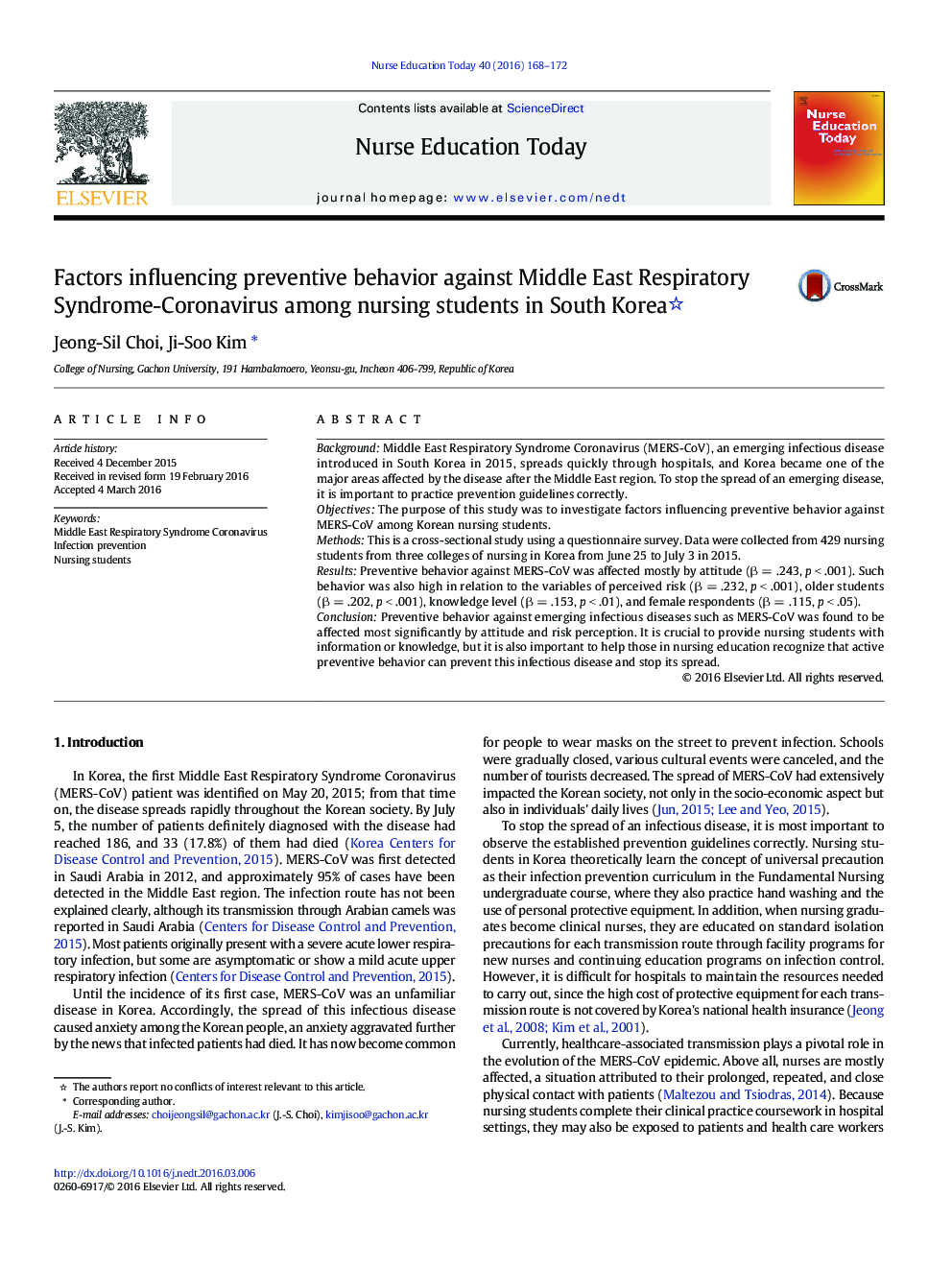| Article ID | Journal | Published Year | Pages | File Type |
|---|---|---|---|---|
| 367866 | Nurse Education Today | 2016 | 5 Pages |
•Middle East Respiratory Syndrome Coronavirus spreads quickly in Korea in 2015.•To stop the spread of an emerging disease, it is important to practice prevention.•Preventive behavior against an emerging disease was affected mostly by attitude.•It's crucial to educate nursing students recognize the importance of preventive behavior.
BackgroundMiddle East Respiratory Syndrome Coronavirus (MERS-CoV), an emerging infectious disease introduced in South Korea in 2015, spreads quickly through hospitals, and Korea became one of the major areas affected by the disease after the Middle East region. To stop the spread of an emerging disease, it is important to practice prevention guidelines correctly.ObjectivesThe purpose of this study was to investigate factors influencing preventive behavior against MERS-CoV among Korean nursing students.MethodsThis is a cross-sectional study using a questionnaire survey. Data were collected from 429 nursing students from three colleges of nursing in Korea from June 25 to July 3 in 2015.ResultsPreventive behavior against MERS-CoV was affected mostly by attitude (β = .243, p < .001). Such behavior was also high in relation to the variables of perceived risk (β = .232, p < .001), older students (β = .202, p < .001), knowledge level (β = .153, p < .01), and female respondents (β = .115, p < .05).ConclusionPreventive behavior against emerging infectious diseases such as MERS-CoV was found to be affected most significantly by attitude and risk perception. It is crucial to provide nursing students with information or knowledge, but it is also important to help those in nursing education recognize that active preventive behavior can prevent this infectious disease and stop its spread.
